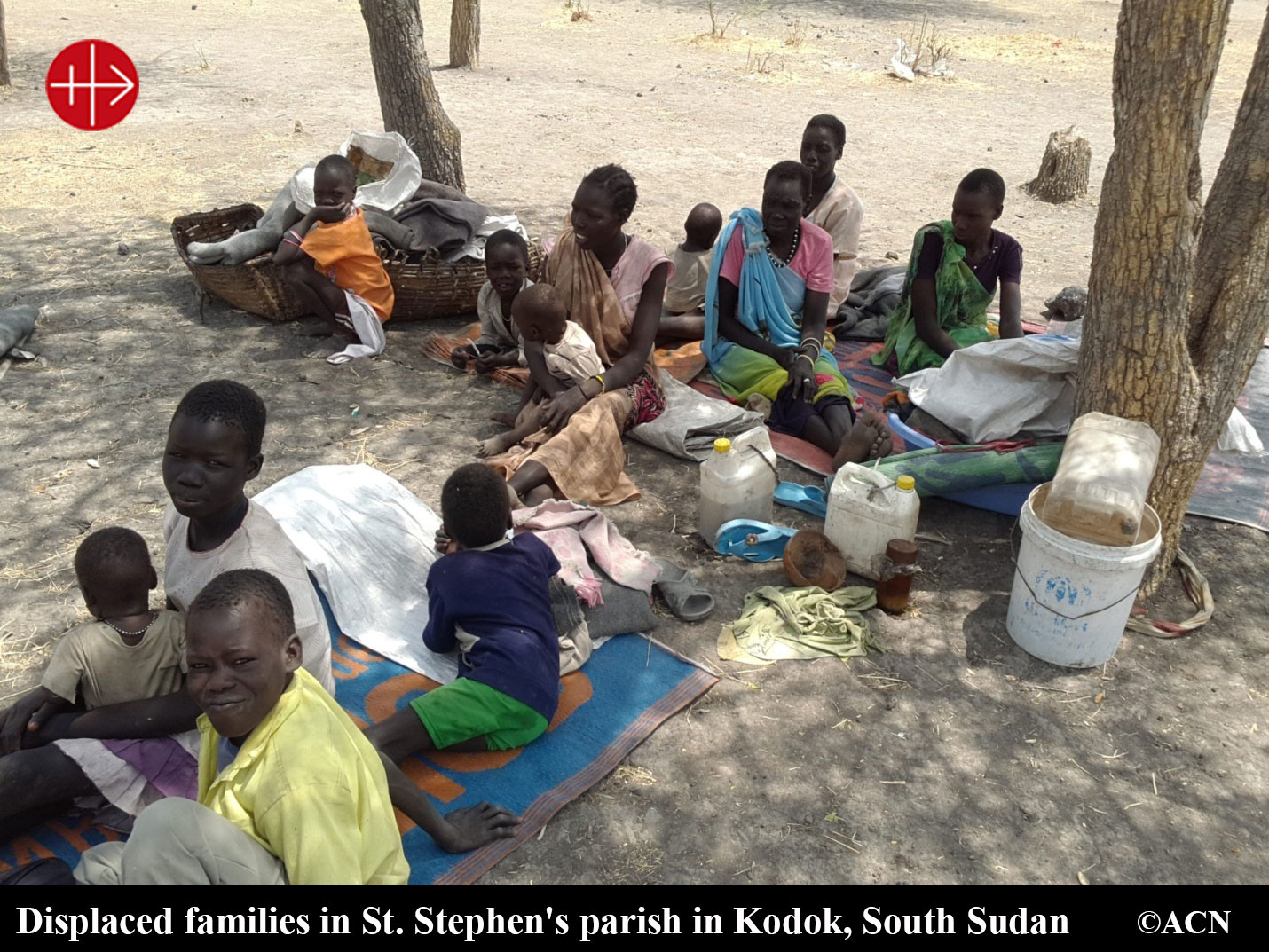SOUTH SUDAN
Bishops hopeful as a permanent ceasefire is declared through the country remains tense
Bishop Barani Hiiboro of Tombura-Yambio, president of the Sudan and South Sudan Catholic Bishop’s Conference, welcomed the news that a permanent ceasefire has been declared on 27 June to take effect within 72 hours by South Sudan officials and rebel leaders after four-and-a-half years of devastating civil war. The violent conflict broke out less than two years after South Sudan gained independence in 2011, civil war when former Vice President Riek Machar was accused of attempting a coup.
Two weeks ago, President Salva Kiir of South Sudan held talks in Khartoum, the capital of Sudan, for the first time in two years with rebel leader Riek Machar. Sudanese President Omar al-Bashir, along with leaders of Ethiopia and Uganda helped broker the peace negotiations. The United Nations had threatened South Sudanese leaders with travel bans and asset freezes if the violence had not ceased by the end of June.
According to the agreement, both sides are expected to withdrawal forces, release prisoners, and open pathways for humanitarian aid. A transitional government will be formed for a 36-month period, and the peace process will be monitored by the Intergovernmental Authority on Development and the African Union.
As the ceasefire agreement went into effect on Sunday, violence erupted again. The warring sides in South Sudan accused each other of launching attacks that killed 18 civilians and wounded 44. The dead included three Ethiopians and two Sudanese. Lul Ruai Koang, the spokesman for the government military, said rebels attacked Maban in Upper Nile state in the far northeast near the border with Sudan and Government forces responded. Lam Paul Gabriel, deputy spokesman for the opposition SPLA-IO said their forces had been “heavily bombarded” by the military in the Maban area on Sunday and denied attacking civilians, saying: “It is not the policy of SPLM-IO to attack civilians.”
However, both factions involved in the fighting in South Sudan declared their immediate commitment to the ceasefire. Sudan’s Foreign Minister Al-Dirdiri Mohamed Ahmed said the skirmishes between rival parties in South Sudan were mere “events” that do not amount to ceasefire violation.
Numerous peace agreements have failed in the past and Catholic and world leaders have emphasised that the nation’s leadership must be ready to rebuild society for the peace agreement to last. Bishop Hiiboro said, “if it is to mean anything for the suffering people of South Sudan, then our leadership must face the task of rebuilding our broken pieces – social and political relationships, the fragile economy, and the infrastructure of our states, devastated by the conflict.”
Four years of civil war created a massive famine and left millions of people throughout South Sudan in desperate need of food, clean water, healthcare, sanitation and shelter. Hundreds of thousands died and millions were displaced when they had to flee their homes, ending up as refugees. Before the country can recover, its leaders must strive to maintain longlasting peace so that its millions of displaced citizens can return to their homes, schools, farms and businesses to rebuild their lives and communities.





